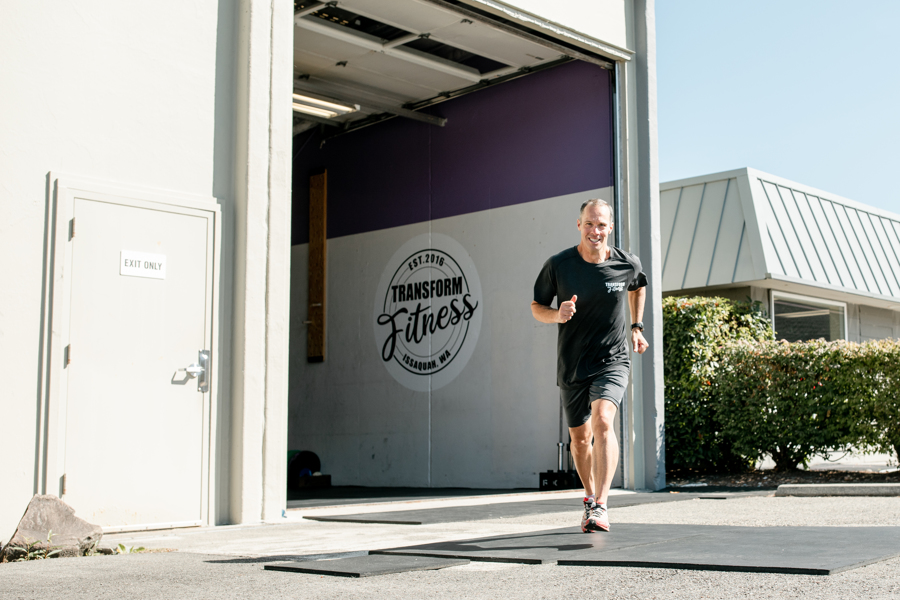Let's Talk Recovery

In pursuit of the perfect body, many people focus on things like workout routines and supplements, however, many fail to consider another vital component of training, recovery. Remember that training is the stimulus to which the body adapts, but sufficient rest is essential to allow time for the adaptations to take place. With adequate sleep, athletes run better, swim better, and lift more weight. Here are some helpful ideas to help promote better sleep, recovery, and decrease stress.
Sleep practice protocols:
1. Keep a regular schedule. Our bodies like regularity. Try to go to bed and wake up at the same time. With a regular schedule, your body will know when to release calming hormones before bed, and stimulating hormones to wake up.
2. Keep alcohol and caffeine moderate. Both will interfere with sleep. Try to avoid caffeine within 8-9 hours of your bedtime.
3. Eat and drink appropriately. A regular to smallish-sized meal about 2-3 hours before bed, one that is balanced in nutrients, can help facilitate sleep. Try not to drink too much liquid in the hours before bed, which will help you avoid waking up for bathroom breaks.
4. Do a brain dump. Take a few minutes to write out a list of whatever is bugging you. Whatever is in your brain, get it out and on to paper.
5. Turn off electronics. Digital devices stimulate our brains. We recommend unplugging from all screens at least 30 minutes before bed. This includes television, computers, and smartphones. The screens release a blue light that prevents our brain from preparing for sleep.
6. Stretch / read / de-stress before bed. Consider trying some yoga poses, reading, or meditation.
7. Go to bed before midnight. This is better aligned with natural light cycles.
8. Set an alarm to go to bed. Work backward and add buffer time: If you need to wake up at 6 AM and want to be in bed for 7 hours, start moving towards bed around 10:30 PM with lights out by 11.
9. Exercise regularly. Physical movement (especially outdoors) can promote restful sleep at night.
10. Take a bath or shower. A warm bath with Epsom salts or even a cool shower (depending on personal preference) can promote restful sleep.
11. Keep the room dark. This means curtains, shades, and/or a sleep mask.
12. Have a stress-free / clutter-free bedroom. Get rid of stacks of mail, boxes, clothes strewn about, etc.
13. Keep it cool. Anywhere from 60-68 F (15-20 C) appears to work best at night.
14. Use white noise. For instance, turn on a fan, humidifier, or HEPA filter.
15. Get outside in the sunlight and fresh air during the day. Or, if you work a shift, try to get lots of bright light and movement when you should normally be awake.
Ideas for promoting recovery and decreasing stress:
1. Take up an enjoyable hobby (at least once weekly): This could be anything. You’ll not only get some time to focus on something that brings you joy, but you’ll also be around people whose company you enjoy (well, most likely).
2. Volunteer once per week: This will likely increase the time you spend around people whose company you enjoy. Plus, you’ll be living according to your values, which always provides a nice dose of goodness.
3. Get a regular massage every few weeks, or on your own preferred schedule.
4. Take ownership of your situation: Acknowledge what role you play in how your life is organized.
5. Spend time outside daily.
6. Set limits on screen time: Yes, this means not constantly checking emails, texting, and reviewing social media.
7. Meditate/pray / quietly reflect (any word you prefer) as often as possible.
8. Include low impact movement (e.g., yoga, walking, biking, hiking) daily. Walk to get your groceries. Bike to the gym. And so on.
9. Gain perspective: Step back and think about your entire life, then consider how today’s stressor fits into the big picture.
10. Practice being alone: Turn off your phone and go somewhere. Maybe out to dinner, a movie, a play, or on a hike. You are with yourself always and forever. The more we can learn to enjoy our own company, the better.
11. Take deep breaths, focusing especially on a long out-breath: This immediately calms your stress response.
12. Practice gratitude: This might mean a daily journal. Or maybe a weekly letter to someone you appreciate.
13. Try a mind-body scan: Find a quiet place with no distractions. Sit or lie down. Set a time, for 5 minutes if you like. Start at the top of your head, and slowly go down to your toes. Notice all physical sensations: hot/cold, itchy, tense, etc. Observe, don’t judge. You can do this anywhere, at any time, in order to slow down and calm your body.
• Question 1: What are you feeling, physically?
• Question 2: What are you feeling, emotionally?
• Question 3: What are you thinking?
• Question 4: Based on this scan, what have you learned about yourself today?
In an article by Daniel O’Hearn, a sleep disorders specialist at Johns Hopkins University, he said, “People don’t respect sleep enough, They feel they can do more — have more time for work and family — by allowing themselves less time for sleep.” Getting the proper amount of sleep is essential, especially if you are physically active. Along with a balanced diet and an intense exercise program, getting the right amount of sleep may be the last ingredient to help you decrease body fat or increase muscle mass and strength. Strive for seven to eight hours of sleep a night. Finally, without the proper amount of recovery and sleep, even the best-designed training program will yield little or no results.
